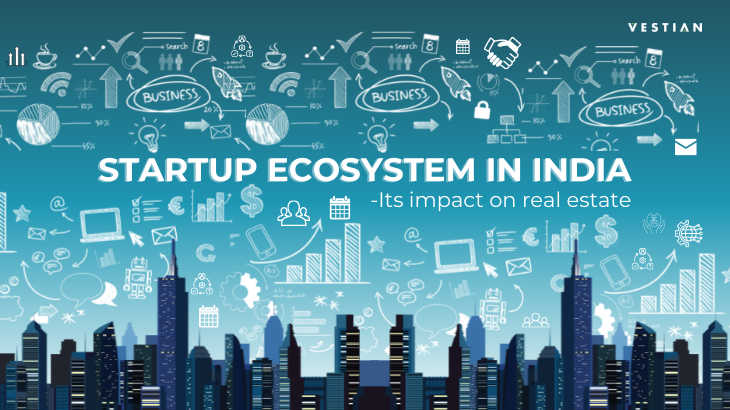India currently has the third-largest start-up ecosystem in the world, next only to the United States and China. With over 73000 registered start-ups spanning across more than 645 districts and incubating 105 unicorns, the start-up ecosystem in India is valued at over USD 330 billion.
The journey of start-ups in India, dates back to the early 70s and 80s, with the software service start-ups that catered to both domestic and international needs. Decades later, in the 2000s, Indian start-ups shifted their focus to solving emerging problems and tapping into the plethora of opportunities that arose with the changing business environment. In 2021India experienced the largest unicorn wave, with 44 start-ups achieving the status and at a cumulative valuation of USD 93 billion. The Indian start-up ecosystem achieved yet another milestone in May 2022 when Neobank – Open became the 100th unicorn in India. From the first unicorn- InMobi in 2011 to hitting a century with Neobank-Open in 2022, the ecosystem has come a long way.
Today most start-ups are leveraging the ever-growing digital wave in the country and working on cutting-edge ideas, products and services. Twenty unicorns have already emerged in the first half of 2022, and by the end of the year, it is anticipated that the number will surpass 50. With over 7 lakh direct and 34 lakh indirect jobs created in the last decade spanning across sectors, these innovative start-ups are imbedded in each and every aspect of society, and have the potential to drive the country’s next leg of economic growth.
This growth is largely attributed to factors like shifting perceptions towards entrepreneurship, technological advancements and government support. Besides, fast-paced economic growth in the past decade, growing urbanisation, and increasing per capita income have resulted in fuelling consumption levels, that bode well for start-ups.
The government, having recognised the value of start-ups with respect to employment generation and solving social and technological problems, has set up initiatives like Start-Up India, Pradhan Mantri Mudra Yojana, ASPIRE and Funds of Funds, to provide a strong foundation and conducive environment for their growth. The government has also launched various programs, competitive events and introduced a governing framework to support and build a strong start-up ecosystem.
Although these factors are contributing to the surge in the number of start-ups, the ecosystem faces some critical challenges, the most prominent one being viability and scalability of a start-up. Technical and financial viability of the project and its operational scalability can prove to be a major hurdle for founders with a lack of business acumen. Another critical challenge is the lack of existing infrastructure like Incubators, Science and technology parks required for providing a habitable realm.
A further challenge to the ecosystem is the existing preference for software-focused start-ups. With an almost negligible share of the pie of funding, hardware-focused start-ups face an uphill task ahead as the inclination depicts the investor focus which can morally affect the founders resulting a tidal shift in their business plan.
Additionally, other factors like regulatory bottlenecks and customer acquisition and retention are also decisive in determining the success rate of the ecosystem.
Impact on Real estate:
Despite these conditions, start-ups in India are certainly gaining ground. The pandemic led to the reverse migration of talent to their respective hometowns and created an opportunity for start-ups to solve local challenges. As a result, a significant number of start-ups emerged from non-metro cities boosting the social and economic status of these regions, while positively impacting the real estate market as well.
The spurt in number of unicorns and ongoing tech transformation will be beneficiary for the real estate sector in the long term. The current preference for flexible workspaces by start-ups is visible as they offer greater functionality and value for purpose in the initial stages. As start-ups scale up, they tend to lease more space and shift to Grade A buildings. Thus, the space occupied by start-ups is expected to increase by 60% from 2021 to 2024. Record funding of start-ups in 2021 was one of the key reasons for the real estate sector to bounce back and it is expected to propel the upward trajectory of the sector.
Going forward, the growing number of start-ups is expected to have a domino effect causing an increase in the demand for real estate in established metro cities and non-metro cities which are emerging as new start-up hubs, thereby stimulating socio-economic advancement of the country.
